
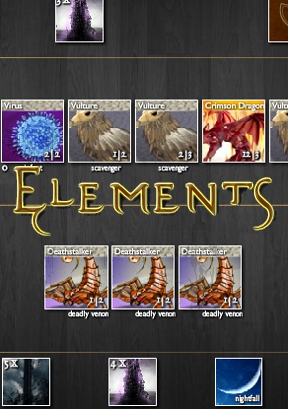 In 1993, a small gaming company called Wizards of the Coast published a novel card game developed by college professor Richard Garfield called Magic: The Gathering. Originally intended to be something of a casual game to be played in between the larger campaigns present at gaming conventions, Magic's popularity almost immediately exploded. In the seventeen years since, not only has the game maintained its popularity, but it has also spawned a number of other collectable card games, each in their own turn serving as the source for novels, manga, and Saturday morning cartoons. There have even been a number of browser based collectible card games including Elements, a surprisingly deep and well rounded offering from Zanzarino Design.
In 1993, a small gaming company called Wizards of the Coast published a novel card game developed by college professor Richard Garfield called Magic: The Gathering. Originally intended to be something of a casual game to be played in between the larger campaigns present at gaming conventions, Magic's popularity almost immediately exploded. In the seventeen years since, not only has the game maintained its popularity, but it has also spawned a number of other collectable card games, each in their own turn serving as the source for novels, manga, and Saturday morning cartoons. There have even been a number of browser based collectible card games including Elements, a surprisingly deep and well rounded offering from Zanzarino Design.
In this fantasy themed collectible card game, you take on the role of an elemental, a kind of mystical spirit composed of one of the twelve elements, or fundamental building blocks of existence. As an elemental there are a number of skills available to you that you can employ to test your might against other elementals. If you are very good and very lucky, you may even prove strong enough to challenge beings claiming to be invincible gods.
Before you even think about annoying deities, though, it might be wise to familiarize yourself with the basics. In your standard duel each elemental begins with 100 health points, and your goal is to reduce your opponent's health to zero. You'll accomplish this using three basic card types: creatures, spells, and permanents. Creatures will attempt to attack your opponent each turn and sometimes come with special abilities that can further give other elementals severe headaches. Spells are cards that produce their effect once and are then discarded. Permanents, as their name might suggest, are played and continue to produce their effect permanently throughout the game (unless, of course, another card is played that negates the effect or destroys the card).
Of course, playing these cards isn't free and that's where "Quanta" comes in. Most cards require a certain amount of element specific quanta in order to come into play, and to get that quanta, you'll need to play special permanent cards such as pillars and pendulums. While we're covering quanta, it's also worth mentioning that often times the special abilities of some monsters also requires the usage of quanta to activate. Manage your quanta and knock your opponent out before he gets you, and you'll win some Electrum (that's the in game currency), and maybe even win a card.
Like all good collectable card games, the nuances and mechanics of Elements could go on and on, and also like all good collectable card games, the best way to acclimate yourself to them is to get in there and play. In between matches you'll be able to manage your deck, visit an oracle that gives you money and sometimes cards and special abilities, embark upon quests (which act more like a tutorial than anything else) and you can visit the bazaar where you can buy lots of cards and build up your deck. Happily enough, unlike real card games, you won't have to save up a week's worth of lunch money doing so.
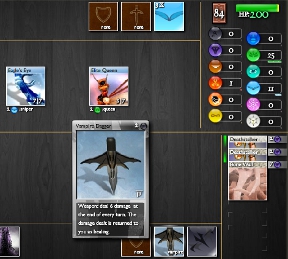 Analysis: In many ways, Elements manages to capture much of the spirit that I once felt when I used to play its spiritual ancestor over a decade and a half ago. It sparks the imagination and puts your vision and strategic mettle to the test. It can suck you in for hours at a time, but with each match lasting hardly more than a few minutes on average, Elements can be as casual an experience as you like. There's even plenty of camaraderie to be had as you chat with other players over strategy, which card is the best to upgrade, what elements work best with each other, etc.
Analysis: In many ways, Elements manages to capture much of the spirit that I once felt when I used to play its spiritual ancestor over a decade and a half ago. It sparks the imagination and puts your vision and strategic mettle to the test. It can suck you in for hours at a time, but with each match lasting hardly more than a few minutes on average, Elements can be as casual an experience as you like. There's even plenty of camaraderie to be had as you chat with other players over strategy, which card is the best to upgrade, what elements work best with each other, etc.
In truth, Elements plays much like a streamlined version of Magic: The Gathering, but it is important to note that there are plenty of differences at work here to make Elements its own game. Here, the complexity of the game's structure as a whole is minimized; however, the interplay that goes on among the dozen different elements creates a breadth of diversity and possibility that lends a wonderful capacity for complexity in strategy and deck building.
And yet, with so many different elements available, this game manages to maintain an admirable balance. No one element is "better" than any other element. Instead, each element has its own personality. Entropy relies heavily on instilling chaos and status effects, Death focuses on poison and capitalizing off of creatures removed from play. There is no single winning element, nor is there any guaranteed successful combination of elements. Monochrome decks can put a serious beat down before the other side has a chance to act, but Rainbow decks can be particularly brutal when crafted right.
Like so many collectible card games, deck building is a major part of Elements, a fact that has its positives and negatives. Elements provides a wonderful support system to take advantage of in between duels from an in game store to an unlockable upgrade service to an oracle that can be visited daily for money among other things. I think the biggest thing lacking here is a way for players to barter cards directly amongst each other. This is particularly true when you start earning rare cards that don't really fit well in your deck. Another downside to how much emphasis is put on deck building is that once you get to a certain skill level, it becomes almost necessary to have an extremely focused deck. The problem with this is that while deck building is intense, actual matches can end up feeling like they are being played on auto-pilot as your deck only revolves around a single strategy.
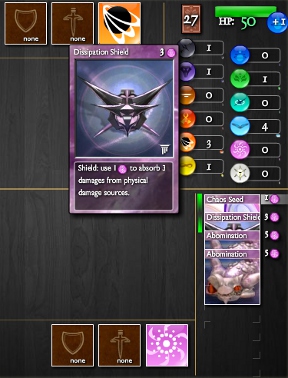 It does take a while to get to this point, of course. Before you're playing at a truly competitive level you'll go through no shortage of grinding and thankfully there's a solid amount of skill stratification amongst computer opponents. You'll start at level 0 as you learn to play, but with patience, imagination, and skill, you can work your way up to playing the False Gods that inhabit level six. One of the best parts of collectible card games though is the ability to play real live players, and the bragging rights that comes from taking them to school. With a loyal and extensive following, you'll find no shortage of flesh and blood opponents to test your deck against. Unfortunately separating live opponents by skill level could have been done much better here. Unless you have someone specific you are going to duel against, PVP (player vs. player) matches are divided amongst upgraded decks and non upgraded decks. The problem here is that there's nothing stopping a highly skilled player from developing a deck without upgraded cards, meanwhile someone who finally has been able to upgrade their first card will likely get destroyed by someone with a fully upgraded deck. Creating PVP skill levels based on games played or record might give players a chance to enjoy more evenly matched games.
It does take a while to get to this point, of course. Before you're playing at a truly competitive level you'll go through no shortage of grinding and thankfully there's a solid amount of skill stratification amongst computer opponents. You'll start at level 0 as you learn to play, but with patience, imagination, and skill, you can work your way up to playing the False Gods that inhabit level six. One of the best parts of collectible card games though is the ability to play real live players, and the bragging rights that comes from taking them to school. With a loyal and extensive following, you'll find no shortage of flesh and blood opponents to test your deck against. Unfortunately separating live opponents by skill level could have been done much better here. Unless you have someone specific you are going to duel against, PVP (player vs. player) matches are divided amongst upgraded decks and non upgraded decks. The problem here is that there's nothing stopping a highly skilled player from developing a deck without upgraded cards, meanwhile someone who finally has been able to upgrade their first card will likely get destroyed by someone with a fully upgraded deck. Creating PVP skill levels based on games played or record might give players a chance to enjoy more evenly matched games.
From a technical standpoint, Elements rates fairly well. There's a suitably large library of unique and rare cards each with its own gorgeous artwork. Meanwhile, aside from a little lag when playing PVP matches, the interface is mostly intuitive and responsive both in and out of matches. My largest complaint is that the game could do a much better job of indicating certain status effects. Sometimes when an effect is cast on a creature it will receive a marker indicating that the creature has that effect, but some effects don't leave markers which can lead to confusion if you aren't paying attention, and sometimes lose you a game if you don't realize an effect is in play soon enough.
Collectible card games can be something of an acquired taste and Elements is no different. Sure, it can be a very casual game, but you'll learn that to go much further beyond the beginner levels will require a level of dedication that is anything but casual. But Elements ultimately strikes the right formula that makes it easy to slip from a casual indulger to a devoted enthusiast. A solid mechanic supported by strong balance, versatility, and tons of creativity and possibility help make Elements an undeniably addictive offering and a respectable addition to the online collectible card game genre.
Play Elements: The Game
Thanks to Matt, Nixx, Sethum, Jb, William, Charles, Alex, and Will for sending this one in!
![]()
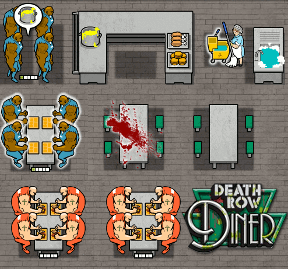 It's a hard knock life, locked up in the bucket, waitin' for jug-up while the hacks are bustin' caps (read: It's really tough being locked up in jail, waiting for food while the guards are shooting people). And then there's the hard-core lunch lady to deal with! In Diner Dash style, Adult Swim's time management game, Death Row Diner, puts you in the role of a prison lunch lady and you've got a bit more to do than just serve food and clean up afterwards.
It's a hard knock life, locked up in the bucket, waitin' for jug-up while the hacks are bustin' caps (read: It's really tough being locked up in jail, waiting for food while the guards are shooting people). And then there's the hard-core lunch lady to deal with! In Diner Dash style, Adult Swim's time management game, Death Row Diner, puts you in the role of a prison lunch lady and you've got a bit more to do than just serve food and clean up afterwards.


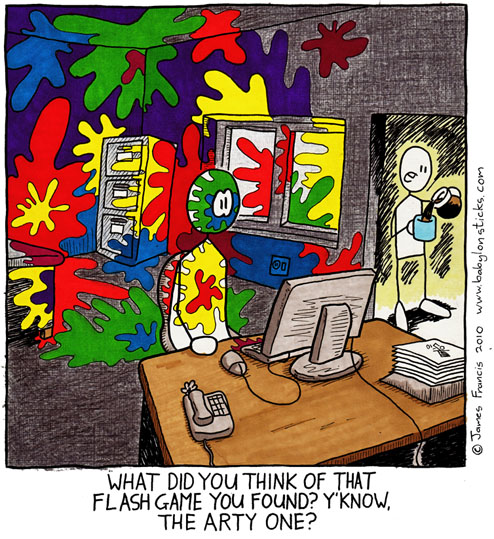
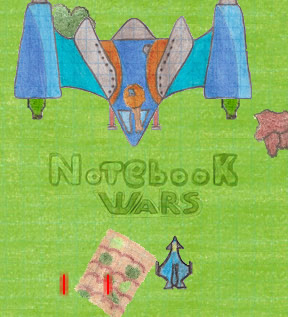
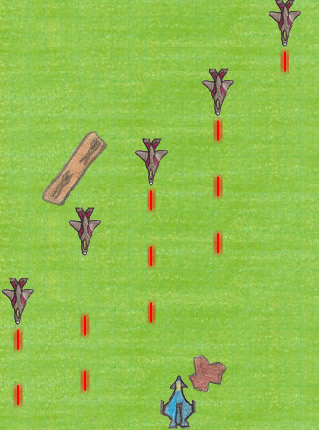
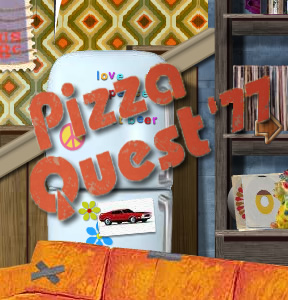
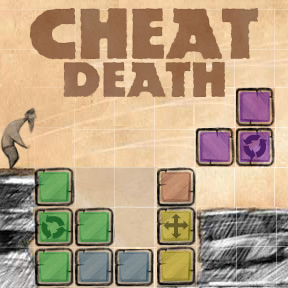
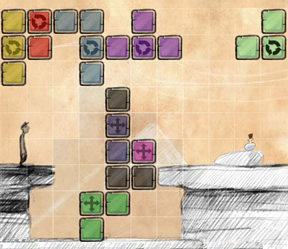
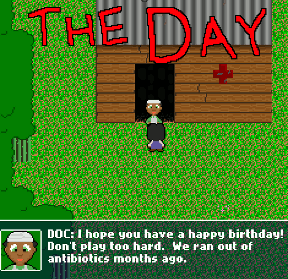
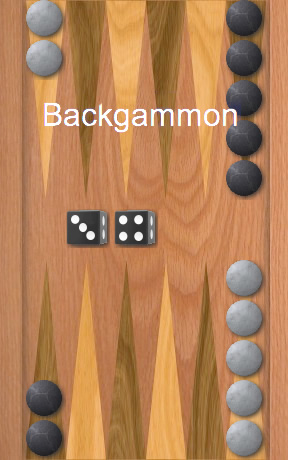


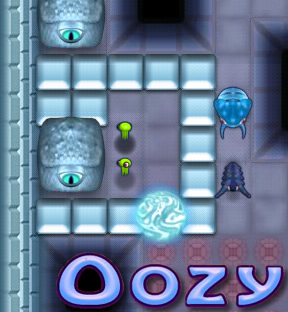
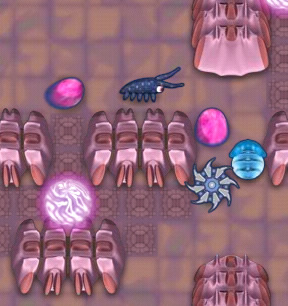
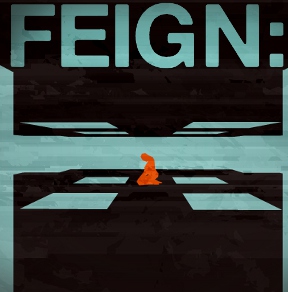

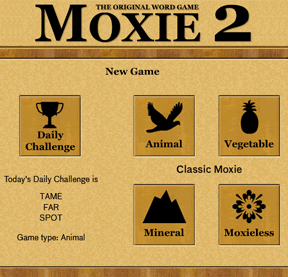
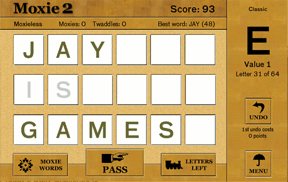
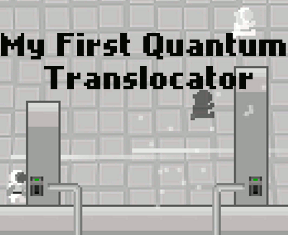
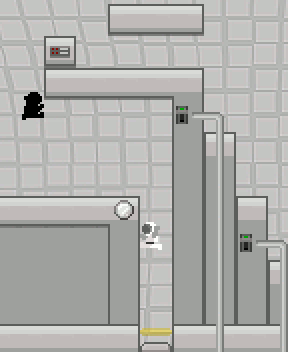
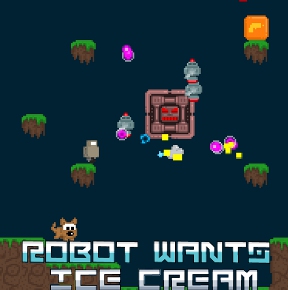

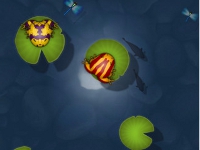
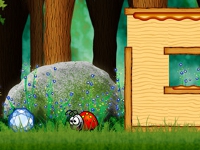
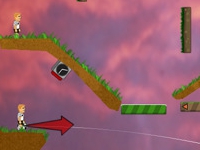
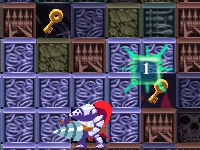

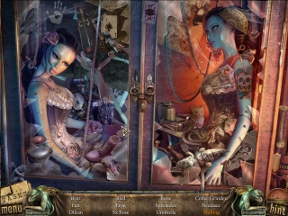
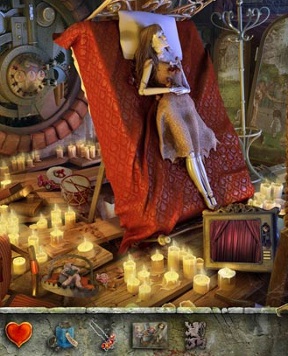

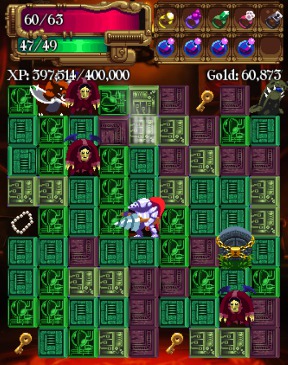
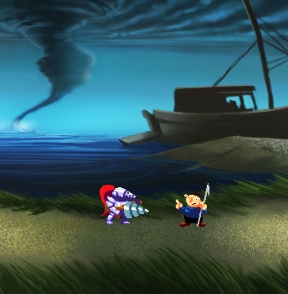
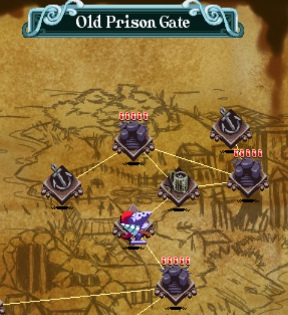

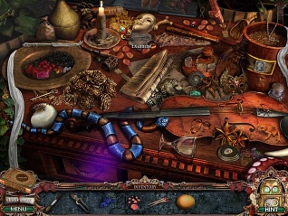
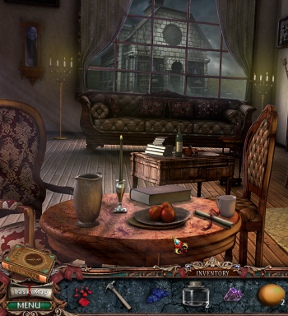


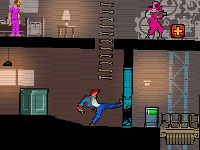
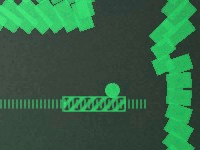

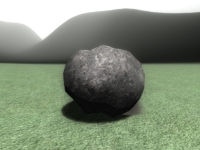

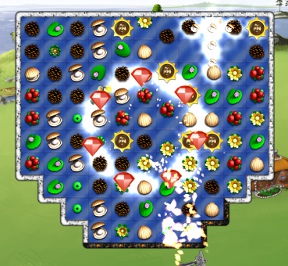
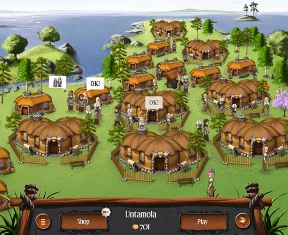
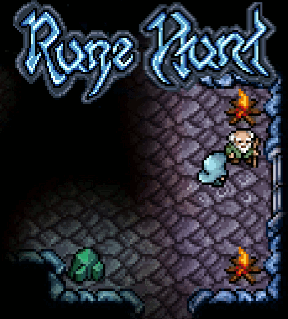
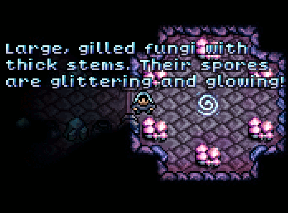

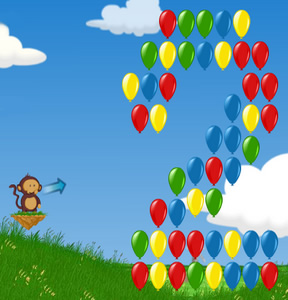
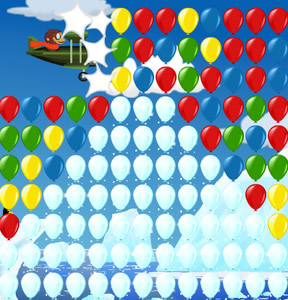

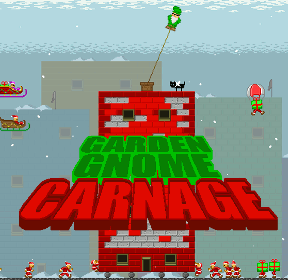
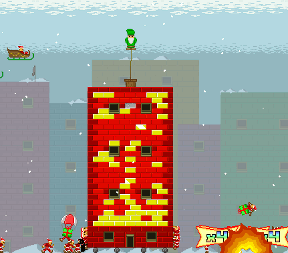
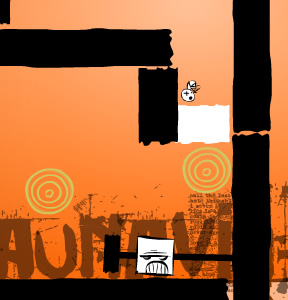
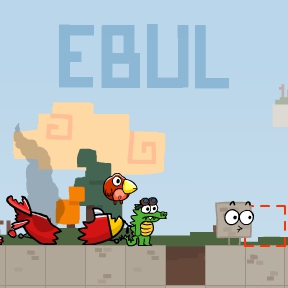
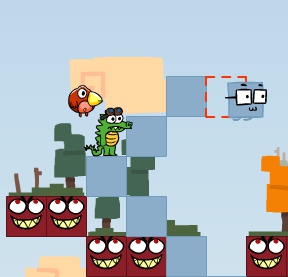
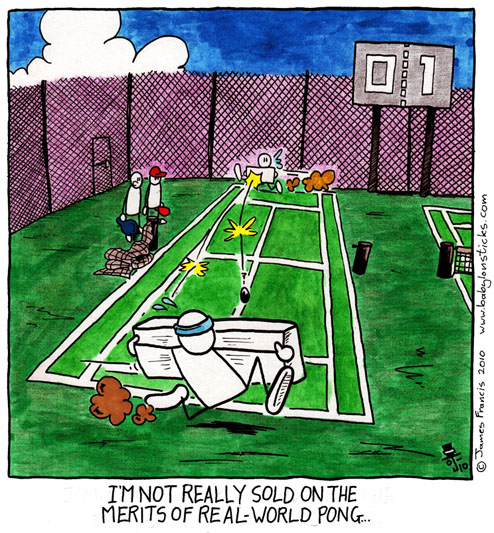
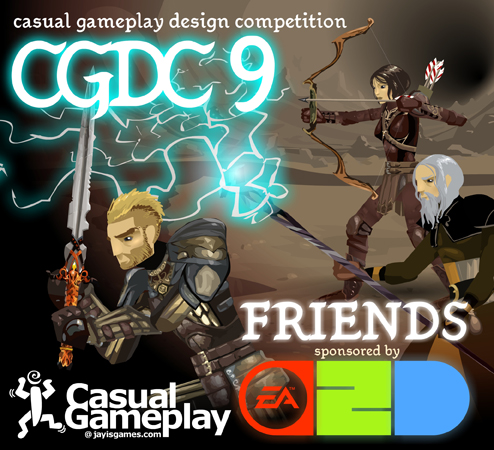
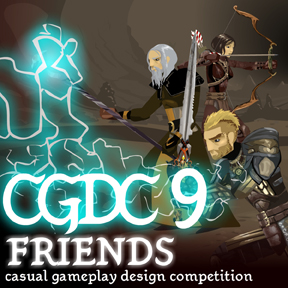 For the 9th Casual Gameplay Design Competition, we are calling for entries designed to incorporate this theme: FRIENDS. You are free to interpret that any way you choose; however, judging will include an evaluation of how well the theme is represented in your game, so we ask that you submit an explanation of how the theme inspired you to create your game when you submit your entry. Use your imagination and be creative. We will select the best entries submitted to represent the competition just like we have done before. Impress Electronic Arts and us with your game design and production skills.
For the 9th Casual Gameplay Design Competition, we are calling for entries designed to incorporate this theme: FRIENDS. You are free to interpret that any way you choose; however, judging will include an evaluation of how well the theme is represented in your game, so we ask that you submit an explanation of how the theme inspired you to create your game when you submit your entry. Use your imagination and be creative. We will select the best entries submitted to represent the competition just like we have done before. Impress Electronic Arts and us with your game design and production skills.
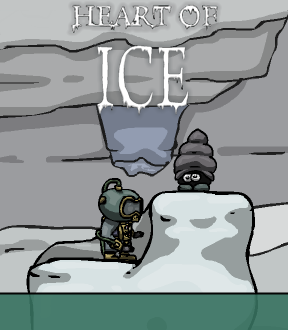
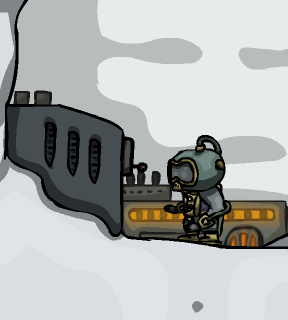
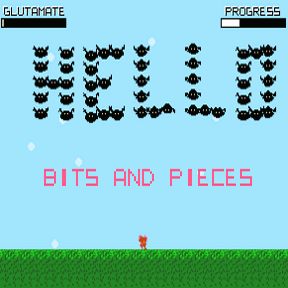
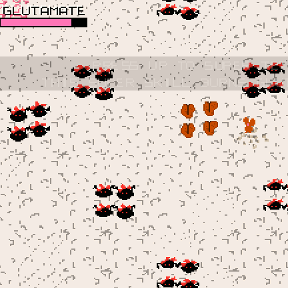
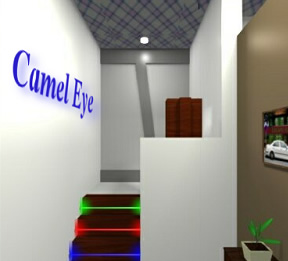
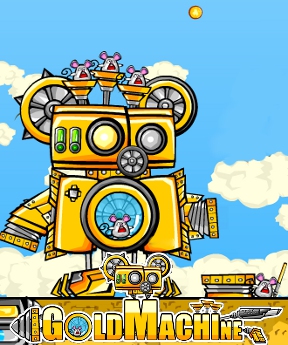
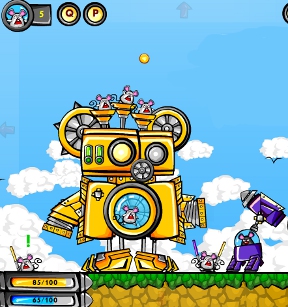
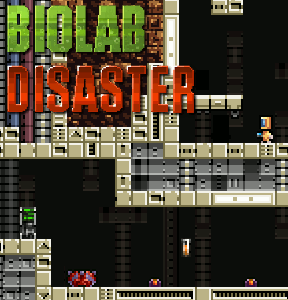
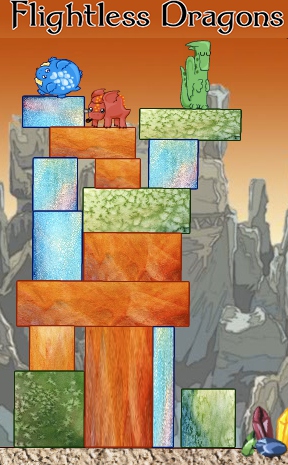
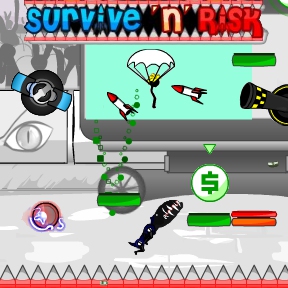
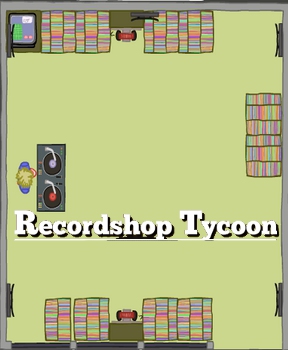
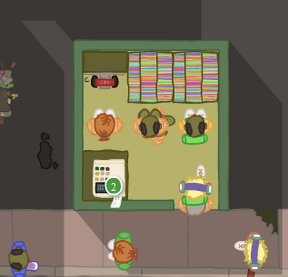
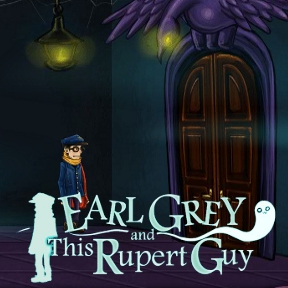
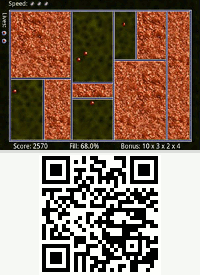
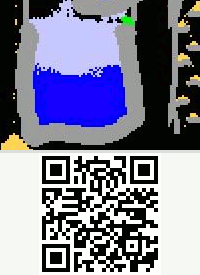
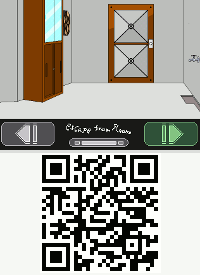
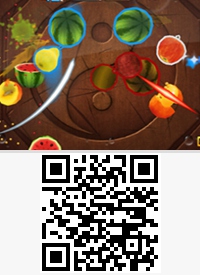

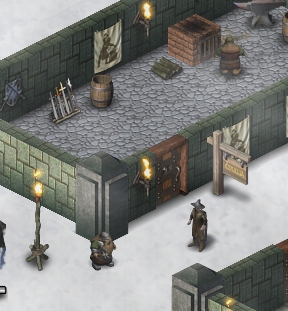
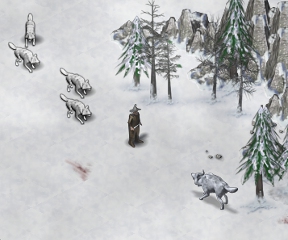
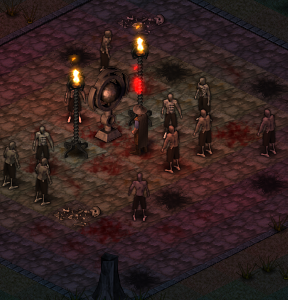
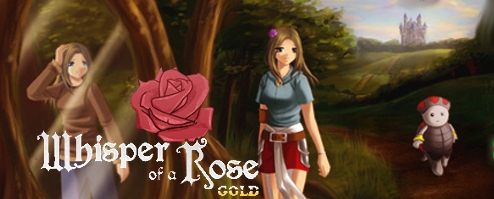
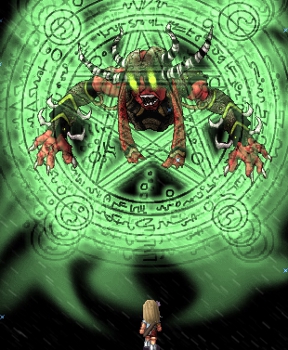
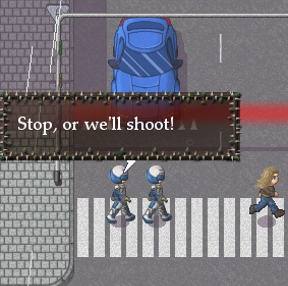
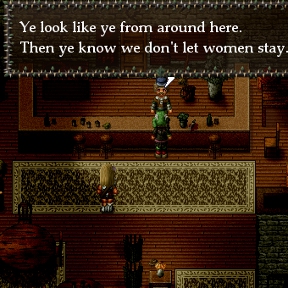
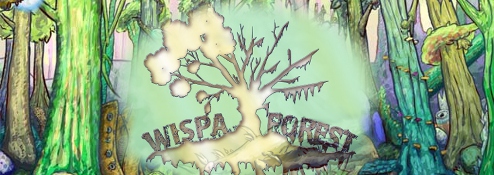
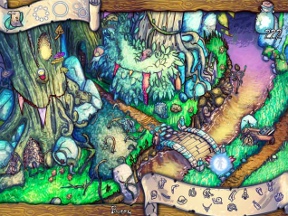
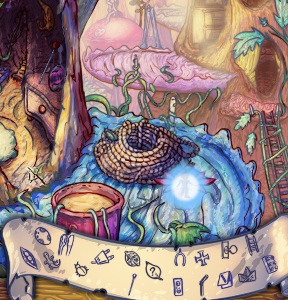
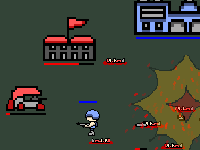
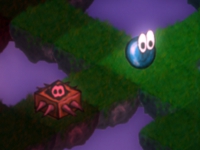
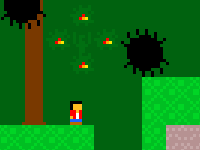
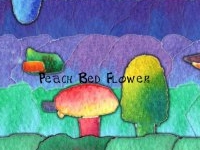

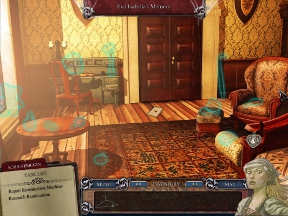
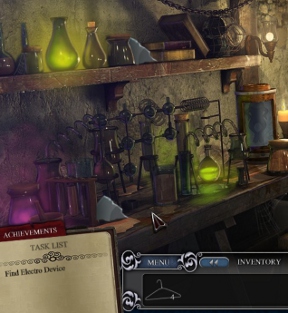
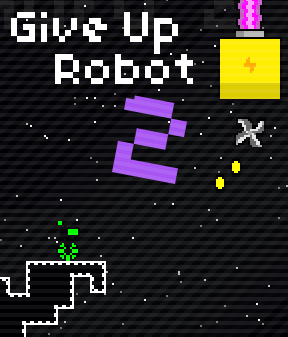
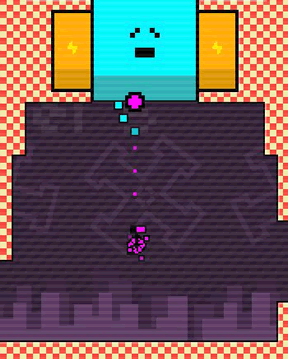
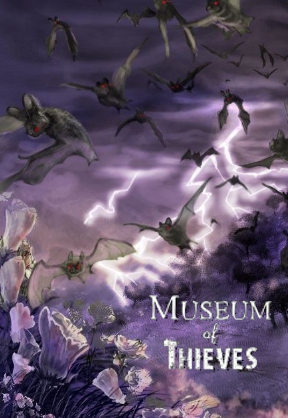
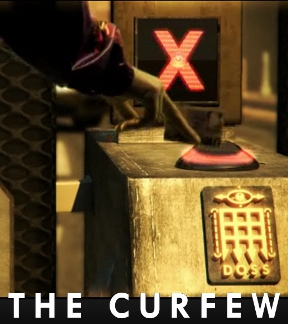
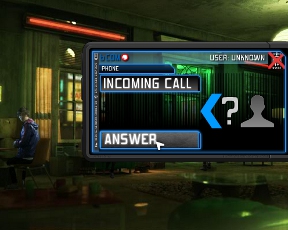
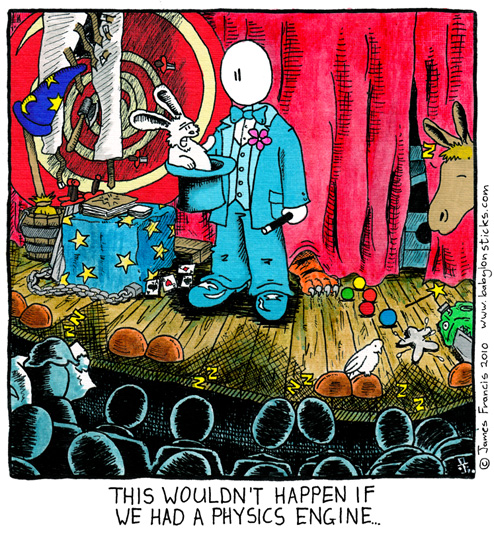
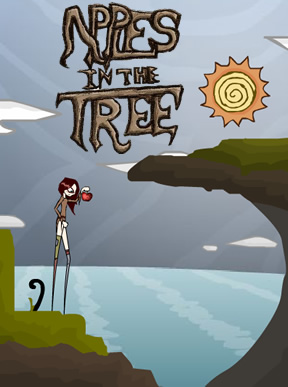
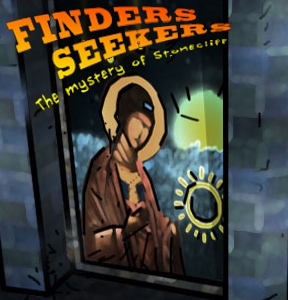
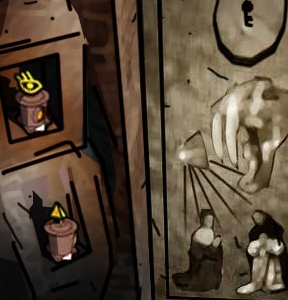
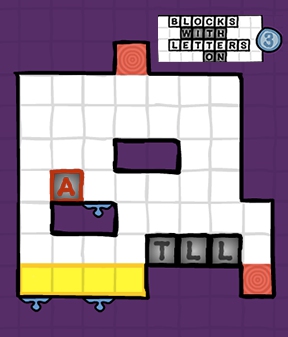
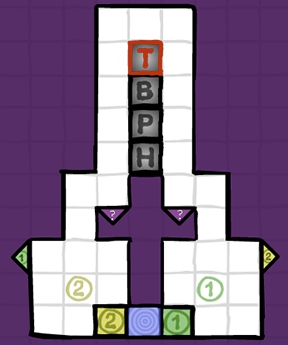
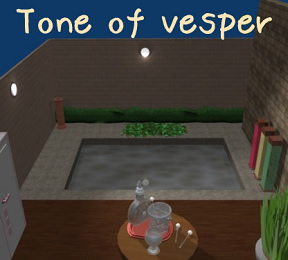
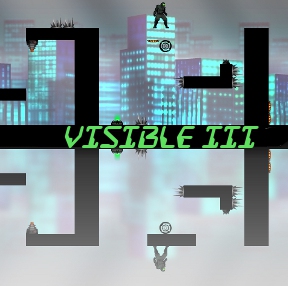
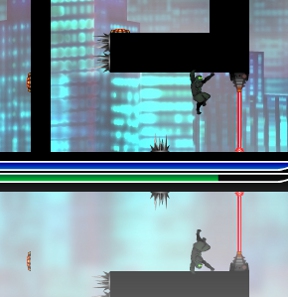
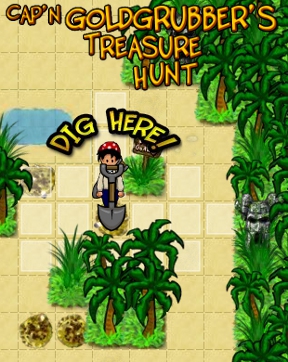
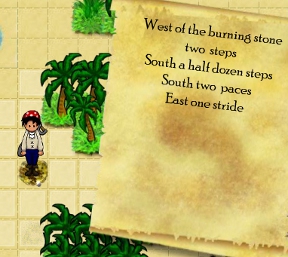
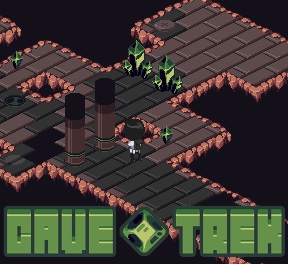
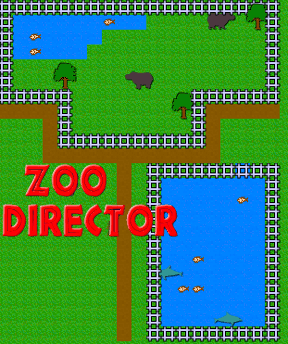
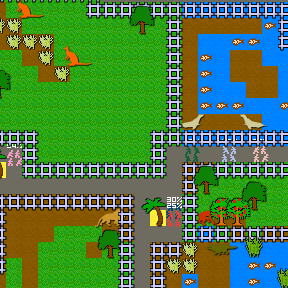
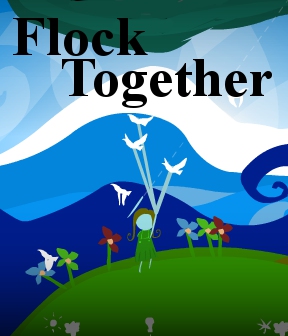
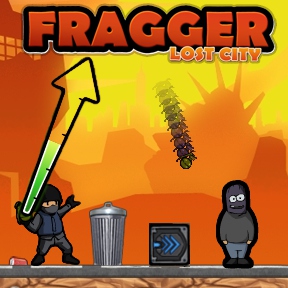
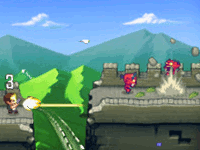
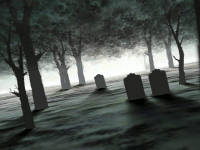
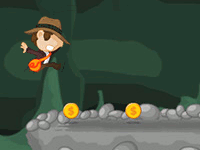
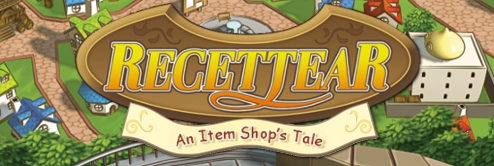
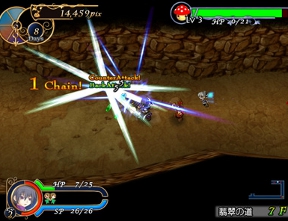
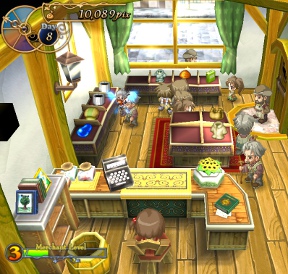
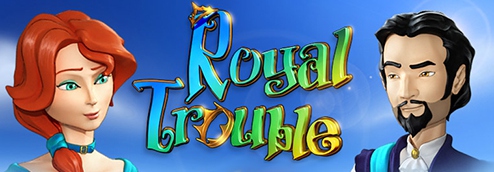
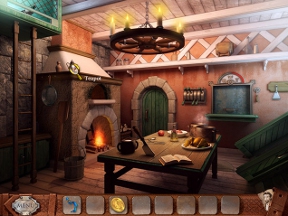
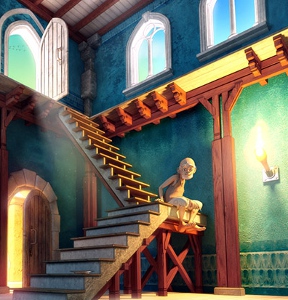

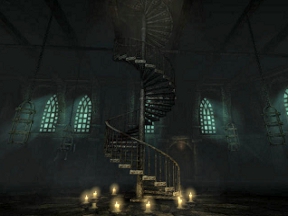

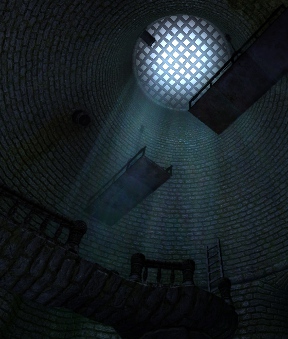
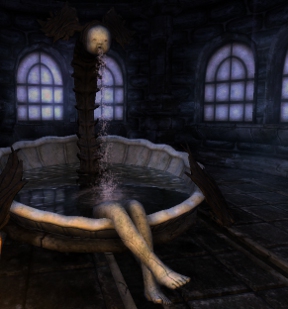

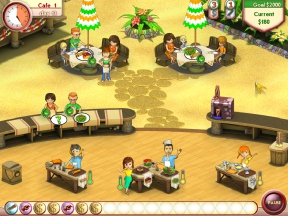
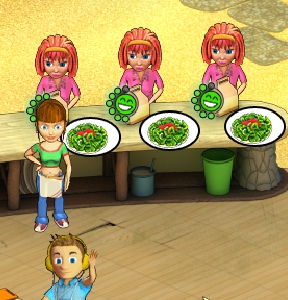
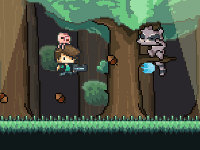
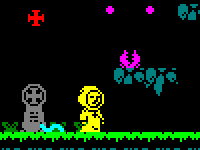
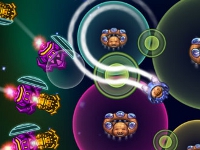

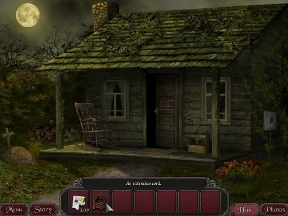
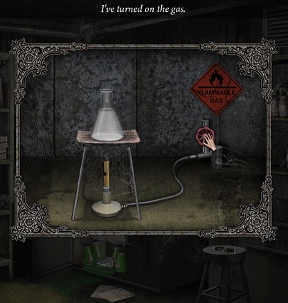
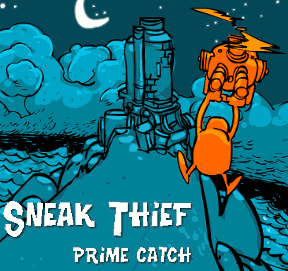
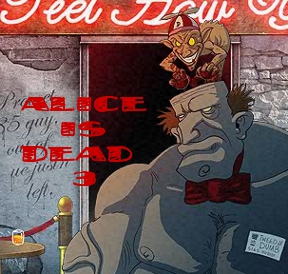
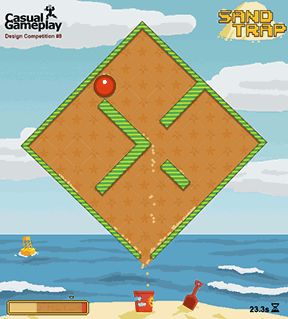
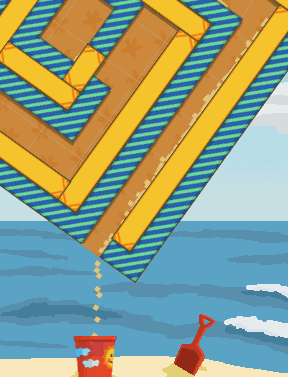
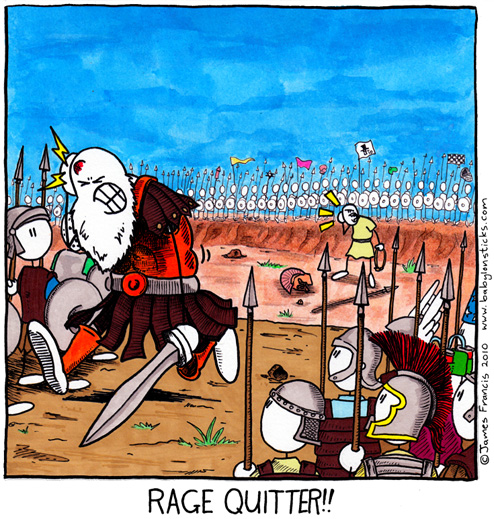

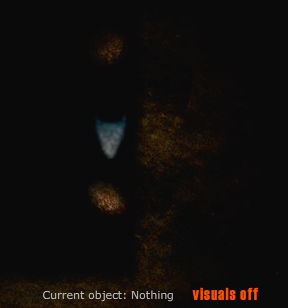
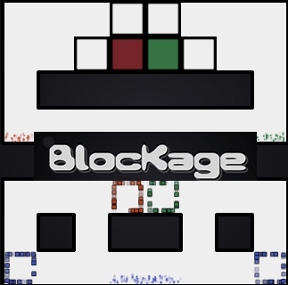
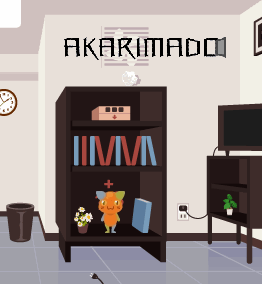
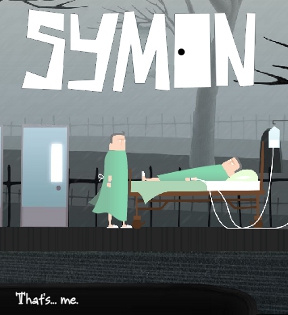
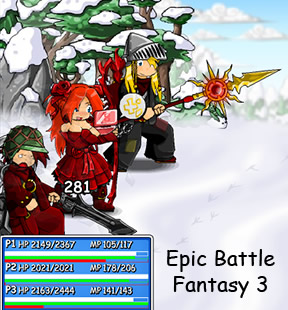
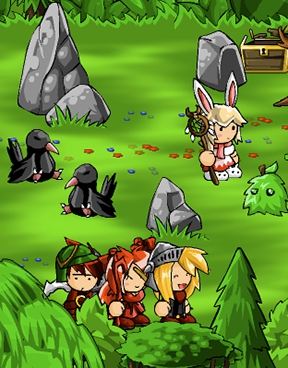
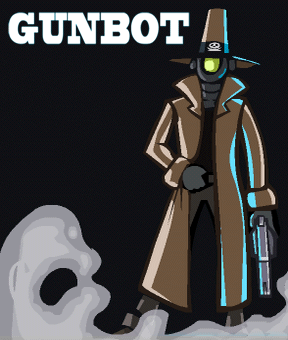
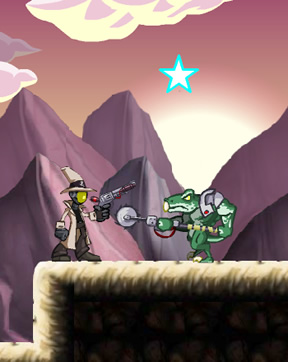
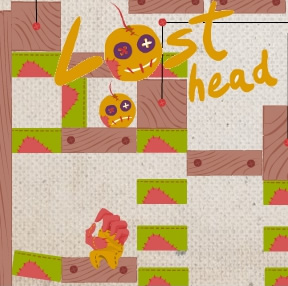
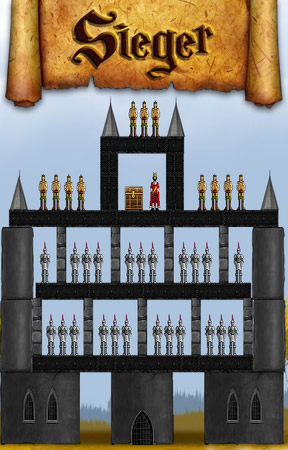
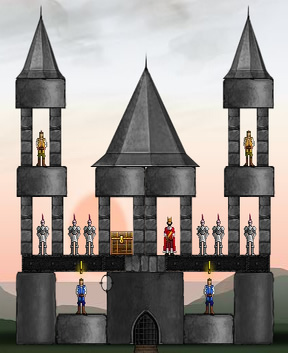
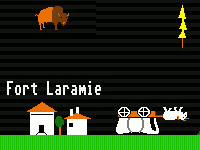
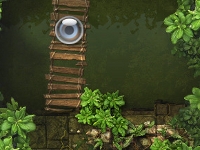
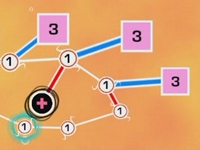
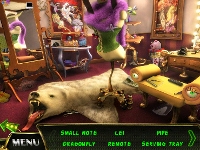
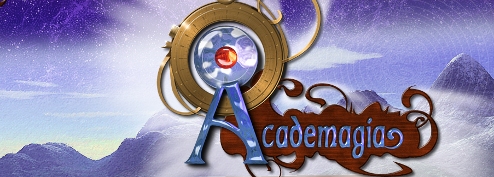
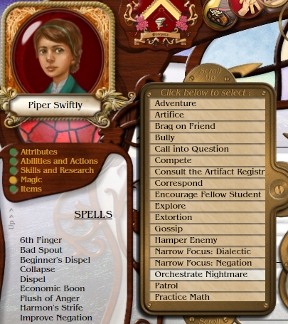
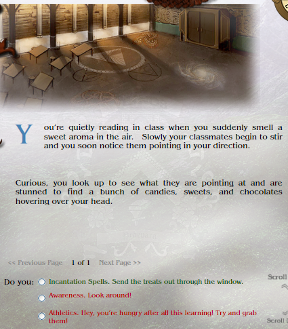

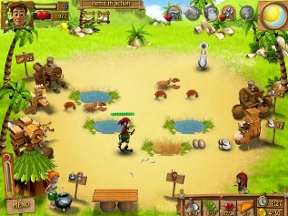
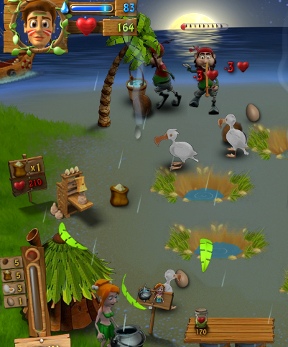

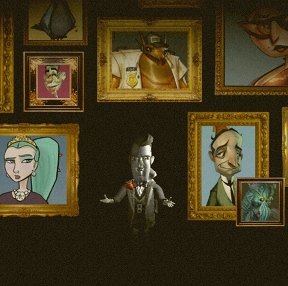
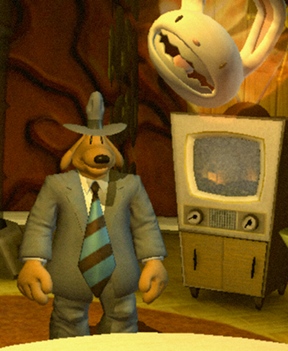
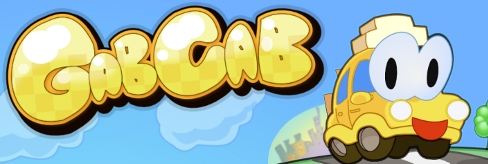
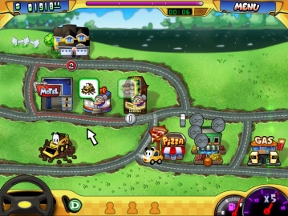
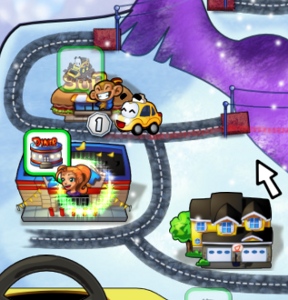
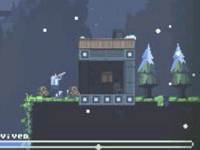
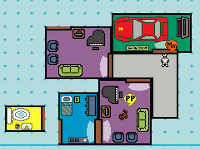
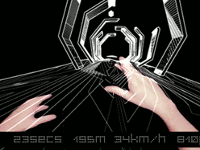
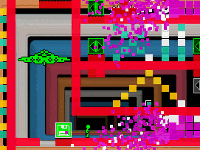
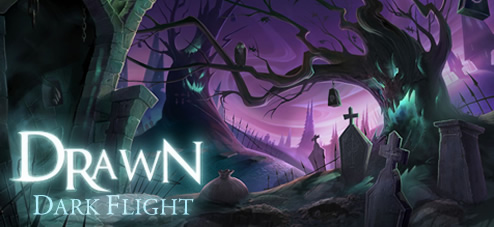
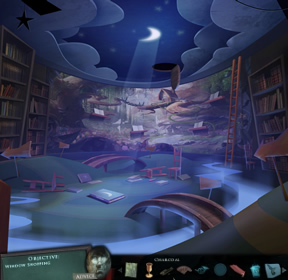
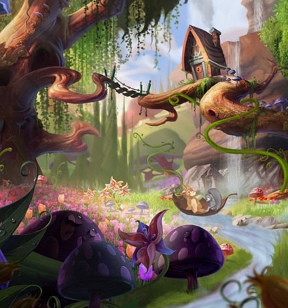
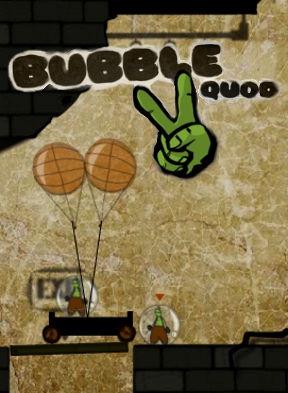
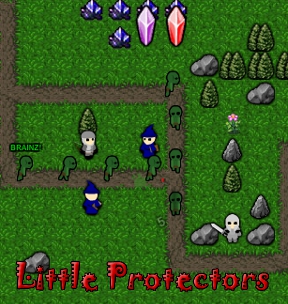
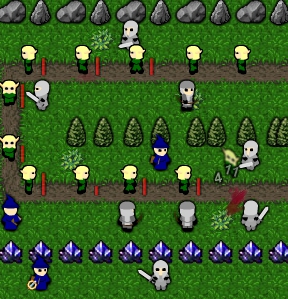
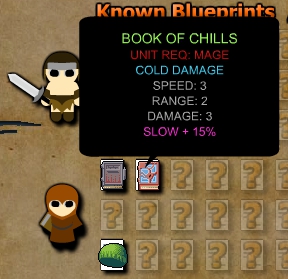
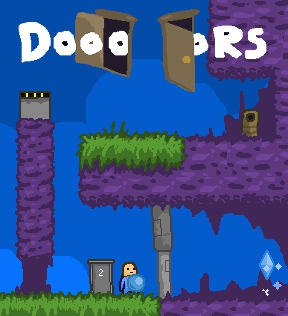
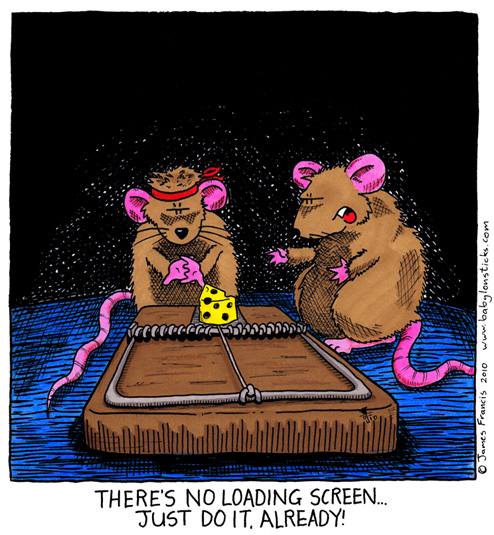
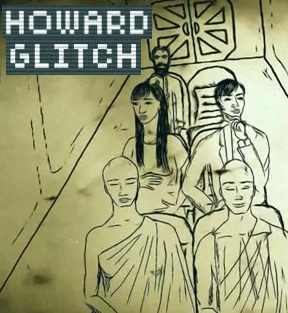
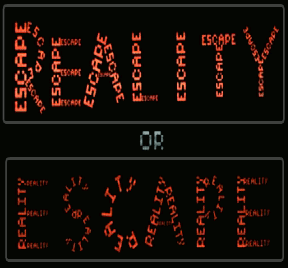



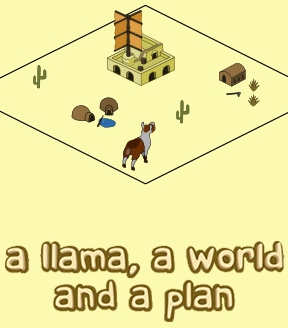
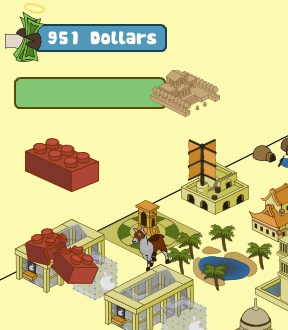
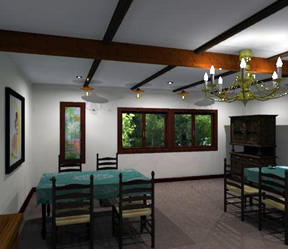


Recent Comments